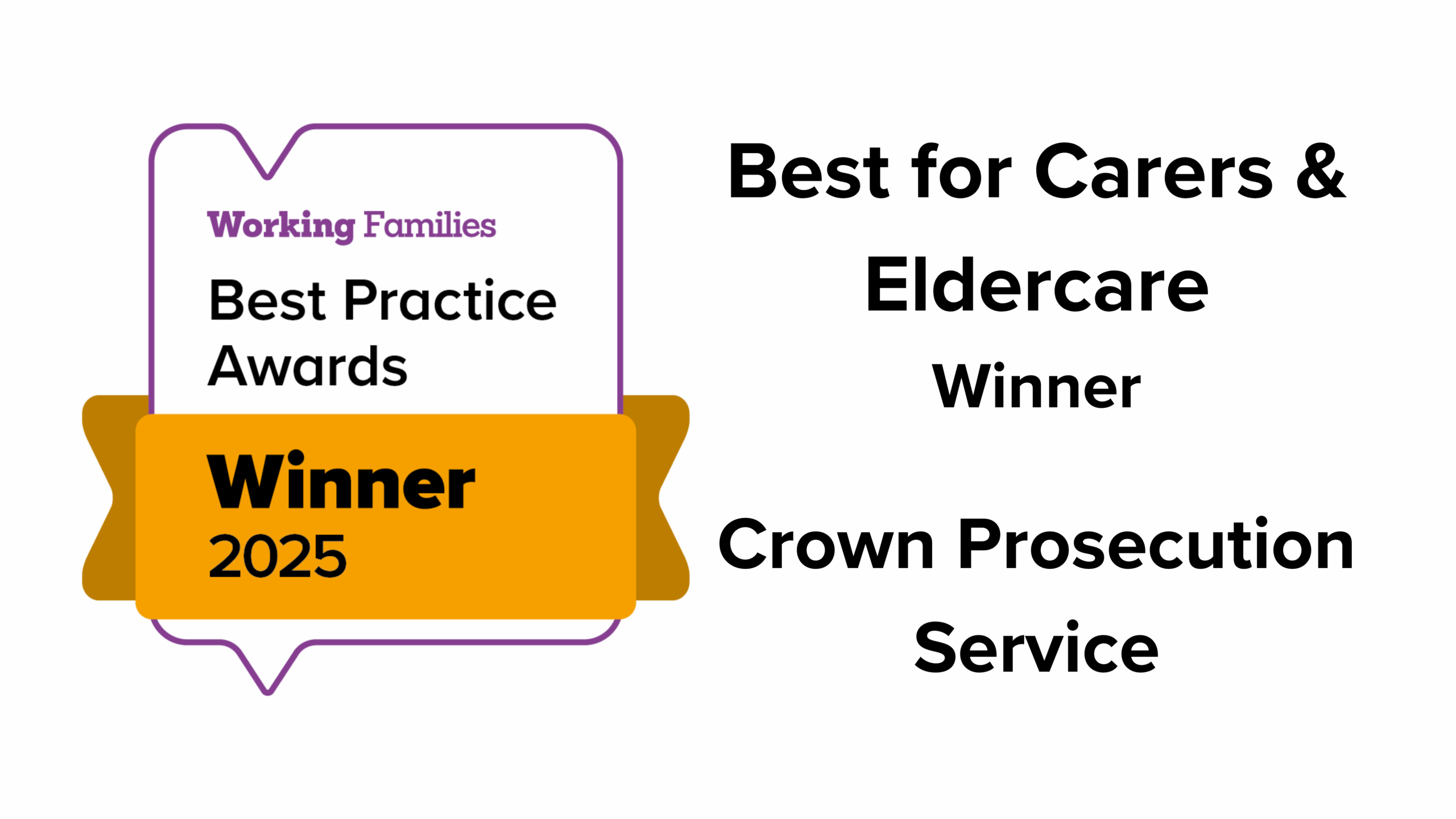Crown Prosecution Service – Winner 2025, Best for Carers and Eldercare
The Crown Prosecution Service (CPS) has implemented a broad range of measures to empower carers to feel engaged and productive, which reflects their vision of ensuring carers are visible, valued and supported.
Identifying carers
The CPS recognise the first hurdle to accessing support is for employees to understand that they are a carer, and so there are numerous opportunities to self-identify, including during the onboarding process, through regular employee surveys or directly to HR and line managers. Internal communications and training aim to raise awareness of who qualifies as a carer and highlight carers’ potential needs, in order that carers feel recognised, appreciated, and able to tap into support.
Carer-friendly policies
The CPS’s commitment to creating a supportive workplace for carers is outlined in a Carers Charter, that defines a carer as someone who provides unpaid care for anyone unable to cope due to illness, disability, mental health issues, or addiction. To support carers in maintaining their mental and physical well-being, they are provided with a range of resources to manage their responsibilities through established support systems. This includes access to paid Carer’s Leave and Special Leave, where applicable.
Short-term and more permanent flexible work arrangements are available, as well as temporary adjustment leave to help manage a change in caring responsibilities. A carer’s passport tool is used to communicate any caring responsibilities which helps facilitate supportive conversations with line managers about any adjustments needed. As responsibilities evolve or managers change, the passport ensures consistency. The vital role of managers in providing the right support is recognised by having a course to foster understanding of carers’ needs.
A holistic approach
The comprehensive support goes beyond policy. Employees have established a network, the Carers Association, to be a platform for information and peer support, where carers can share experiences at regular ‘Care for a Cuppa’ events and access information and resources. Carers are kept up to date via a Teams Channel, mailing list and newsletter. As well as hosting an annual carers conference, carers are celebrated with events during Carers Week. A sub-network, Carers for Children, focuses on carers of children with disabilities and has recently launched new lunch and learn sessions on topics such as special educational needs law and annual reviews. Membership to the Carers Association has increased by over 100 new members in recent times, making it the second largest in the organisation. As well as providing a community, the Carers Association aims to be a strong voice within the organisation to advocate for carers rights.
